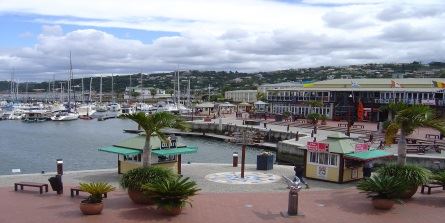Availability of accommodation in Cape Town is one of the key challenges to selling the province during the peak season. Kim Emmanuel spoke to members of the industry on possible solutions.
Tour operators and DMCs often find it difficult to find accommodation in Cape Town during the peak season. Chris Chibaduki, Product and Contract Manager at Springbok Atlas, says high rates during the peak season also pose a challenge for travellers looking for accommodation. “STO rates should still be applicable for long-stay clients. If rates are to remain high, properties should try and offer some value-adds for the long-stay clients.”
1. Travel during the off-peak season

Finding availability in Cape Town during the peak summer season continues to prove challenging. One solution, suggests Saskia Brown, Marketing Representative for La Clé des Montagnes, is to encourage travel out of season. There is no reason why travel to South Africa, and the Western Cape in particular, should be seasonal, she says. “Our winters are very mild in comparison with the Northern hemisphere, with very often beautiful weather – the Western Cape is a fantastic year-round destination and should be marketed as such by both provincial bodies and individual properties.” She adds that travelling during the off-peak season ensures availability of accommodation and avoids the rush at eating establishments and sightseeing venues.
2. Plan in advance

Clinton Thom, General Manager of Park Inn by Radisson Newlands and Radisson Blu Le Vendome Hotel, suggests planning in advance. He says most accommodation providers are fully booked during the peak season and finding accommodation is an expensive exercise. “I suggest planning a year in advance. Most accommodation providers offer discounted rates if you book at least 30 days in advance,” Thom says. Patricia Fourie, Tour Operations Manager at Springbok Atlas, recommends booking 18 months in advance, avoiding big event dates such as the Mining Indaba, the Easter weekend and the Argus Cycle Tour.
3. Refer guests to other establishments

Fanie Van Zyl, SA Coach Charters and Tours, suggests that hoteliers should refer business when they are full and also cross sell with other suppliers. “We are always of the opinion that all accommodation venues must share information and create a uniform platform compatible with bookings sites that can provide alternative options or an ‘accredited referral system’ for accommodation.” He says accommodation venues should work together and cross sell and promote each other.
4. Travel to small towns

Travelling to the smaller towns in the region is one of the ways to avoid accommodation availability problems, says Judy Lain, CMO at Wesgro. “The smaller towns are working seamlessly on developing new experiences and products to showcase the diversity and uniqueness of the areas,” says Lain. She also suggests that companies should work more closely with the local ambassadors to share value with their visitors. Fourie agrees: “Consider possibly booking hotels/guesthouses in the outlying areas of the main cities. You will find unique stays, even better rates and avoid the minimum-stay problem,” she says.
5. Allow shorter stays

Chibaduki says, along with capacity, other challenges include the minimum stay imposed by the suppliers, which at some establishments is seven nights. “Most leisure clients have an average of between seven and ten days of holiday.” Properties should allow minimum two-night stays, he suggests.
























